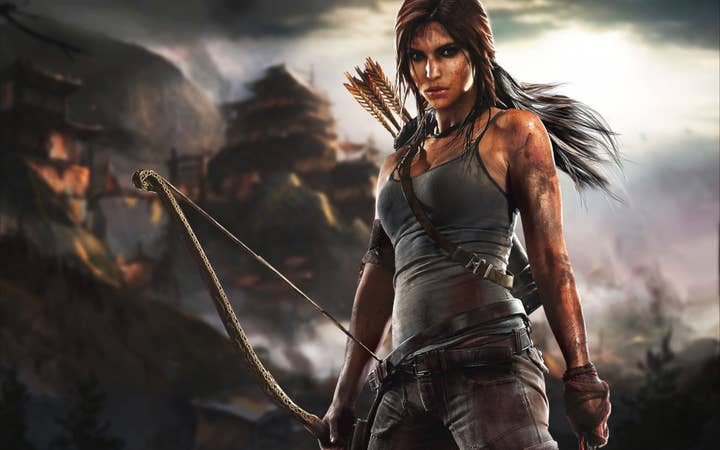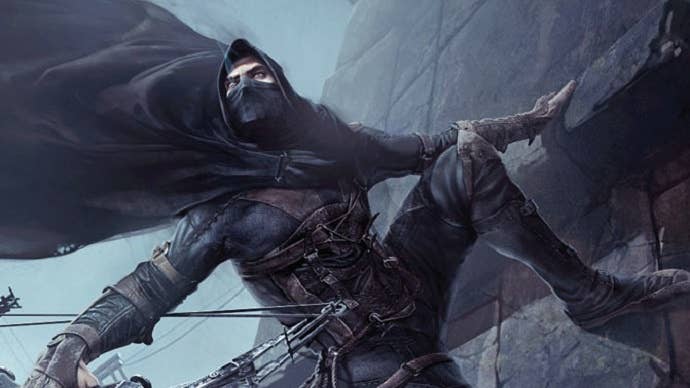Square Roots: The man in charge of Square Enix's Western future
Phil Rogers gives insight into the challenges of an unpredictable market
Phil Rogers is the CEO of Square Enix in the Americas and Europe, and he's busy managing the Western side of the company as it goes through a period of transition. Key to that has been making the development teams work together, finding the right people to fill new leadership roles and progressing the business in a time of massive market changes.
Following the company's financial results, Rogers spoke to GamesIndustry International about the publisher's key IP, new business models and new, riskier propositions like The Collective.
Absolutely we're one global business, but consumers around the world all have different tastes in games and like any company that's creating and delivering unique experiences to consumers; tastes, preferences and background naturally come through. And in fact those differences are encouraged to come through, in terms of how projects are greenlit and developed. Our teams are encouraged to develop according to their markets and to bring their great ideas to the fore and this equally applies to marketers and developers. So for sure there are differences in how that presents itself to consumers but the common goal is to create games that delight and engage and that's a very powerful goal which binds the organisation as one.

We look to build worlds, characters, stories and fun that people will enjoy playing - that we enjoy playing too. We believe in the importance of IP - whether it's new or established - and want to make sure all our projects look to take the IP forward. The beauty about games is that people can tell you precisely what they think of our work and we relish that. With Thief we tried really hard as a business to bring back a much-loved and highly regarded game whilst also making it fresh and relevant for today's gamers and I'm pleased with how we ranked against that. Of course there are areas of the game that people picked out as not being in line with what they expected or wanted and it's great to get that clear feedback. And that is the same approach we take for all our IPs, whether it's made in Japan like Final Fantasy or Western IPs such as Tomb Raider or Hitman.
I won't single out one IP, that's like being asked to pick a favourite child. But I'd say that looking back over the past year, and generally how we're setting ourselves up for the future, one thing we've done well is to set out with a clear focus on broadening our game portfolio in terms of game types and experiences. This is the biggest opportunity for us today - there's such a variety of devices, from online console to tablet, from mobile to PC that we can now imagine experiences for consumers throughout their day. I am very excited to see how our teams begin to shape their games and ideas so that fans can have great fun playing across different devices. And I don't mean porting here but actually crafting an experience that fits with the device, with the potential to extend across multiple devices. I think a property that nails that has the potential today to draw in so much gamer-time.
You're right, Final Fantasy XIV: A Realm Reborn has performed very well and we are excited about the further potential, with the recent launch on the PS4 platform attracting a whole new audience to MMOs, along with a wealth of additional engaging content that will be added on a regular basis throughout the remainder of the year and beyond.
"There's such a variety of devices that we can now imagine experiences for consumers throughout their day"
I can certainly see change in the MMO market over the past few years with gamers choosing to migrate to other web or client PC based online games using the free to play model. That said this isn't a surprise, it's just a natural consequence of people having a choice. And the result is of course there are people who prefer a fixed monthly subscription, they know what they want in terms of game play and universe and subscription is a great way to pay for that. And for us with XIV, the paid subscriptions enable us to take a long-term view, so that the team can plan for the long-term benefits, updates and improvements to the game and how the game experience continues to engage and evolve for the players.
What's going to be interesting over the coming years is to see the emergence of hybrid models for games. I think WildStar will be interesting to see how players take the decision over fixed subscription versus play for free.
So the business model and the game have to work hand in hand and I expect we'll continue to see both free to play and premium models going forward. We will build both types of games. It's part of the balance we want in our portfolio and approach. But market analysts will tell you all the major growth and opportunity is in free to play and I would have to agree with that to an extent - on the one hand free to play offers an easy to start experience, there are few barriers plus the initial experience is well thought through to ensure fun is optimised. At its best free to play offers players choice to spend or not and that has to be good for consumers. However, I think premium games will continue to prosper; for consumers they can offer a fun, immersive experience at bite-sized price points and for developers we could see experimentation with new concepts and IP.
The most important thing for creators to remember is that you cannot compromise the game experience to make a quick buck, balancing how your business model and gameplay exist together has never been more important. Every gamer has a clear voice today and that is a great relationship for us to have as creators - it's easy for us to find out what people think, and whether we have delivered the right balance. That will help us succeed with both models provided we treat them both with respect.

Yes, those numbers exclude digital downloads. The proportion of digital sales in our HD gaming segment has been growing. Our digital business in the West has a number of components which performed well over the past year. We've touched on FFXIV ARR already and in addition to that our team looking after digital sales grew their business almost 60 per cent year-on-year in the West; this includes full game downloads and DLC sales across Steam, PlayStation Network, Xbox Live and our own Square Enix e-stores; overall that represented 26 per cent of our total sales in the West. So we've got a very solid base to build upon here and we've got our teams organised to push hard into digital - through our MMOs, through digital sales and also through games we plan to launch that will offer extensive online content and experiences.
I'm excited by the success of the new consoles, how they've installed and how online stores are set up that I think we'll see a lot of healthy attachment and download rates with some very engaged and happy gamers. As to a time-frame well that's hard to model, gamers still want games in boxes, they want that option and so we want to provide that. What we are seeing is the trend for digital growth as a proportion of the business, growing and I'd expect to see that continue over time.
From a Western standpoint we are seeing a lot of change in the market and therefore we have to embrace that change too. That's inevitable for a business like ours which has a broad gaming portfolio and multiple approaches to our gamers. Internally the last 12 months have seen us make some strategic pivots in the West, we've set our studios up to tackle the future more effectively, with a better balance to address the broader market. A good example here is the new studio we set up in Square Enix Montreal, those guys are now taking on a leadership role to push into mobile and tablet gaming. We've had to attract new talents here and also retain people through that change with clear and exciting goals.
"We have a clear strategy for delivering great content on the new consoles"
It was great to see some early results from the team with the launch of Hitman GO last month, a new take on the franchise which saw positive feedback from critics and gamers alike. And we've made changes on the business side also to address growth areas like digital.
Collective is an exciting project, and something we created for a variety of reasons. It was born out of a desire to help find new talent and creative, new game ideas. But it's also part of our commitment to give the community more of a voice in the game-making process. Of course, we expect to cover our costs, and we've stated that we want to reinvest profit back into the platform - be it ongoing web development, investment in services, support for education, and so on. But what's really important here is that we're a service provider in this process - we're effectively introducing creators to consumers, so given that we're not funding or developing these games, we believe the developers should be the key beneficiaries in any success their games have. Although it's early days we already have 10 projects on there being voted on right now by gamers and we're about to start the first crowd-funding programme very soon for a great game called World War Machine.
Square Enix is in a great position, we have some great IP with a strong fanbase and support and we have fantastic talent in our studios and this sets us up in a prime position for success on the new consoles. The platforms are more open and so I think you're going to continue to see good variation in the types of games and services released for both. We have a clear strategy for delivering great content on the new consoles and we've made a solid start already this year with Thief, Tomb Raider Definitive Edition and Final Fantasy XIV and there's a lot more to come, we've already announced several games including; Murdered: Soul Suspect, Final Fantasy XV, Deus Ex Universe, Kingdom Hearts 3, Hitman and Tomb Raider.

You have to take risks to innovate and create great new gaming experiences. What we won't do is stand still. Online games are a way to facilitate that ongoing relationship with the player within our game worlds, where we can provide regular content updates, engaging gameplay mechanics and a deep sense of community. A game like Nosgoth which is in closed beta right now, is showing great potential as an engaging, rewarding online title. It's early days, but we have a dedicated Live team every day reviewing the data and looking at how they can refine and improve that gameplay experience before it goes wider.
And talking large-scale, towards the end of last year, we talked about Deus Ex Universe and how we want to create an ongoing, expanding and connected game world that will become a persistent experience - not in terms of an MMO, but something that develops and evolves over time. It's an exciting project, potentially the most ambitious game we're working on across the western studios and we're looking forward to sharing more information about it later this year.

